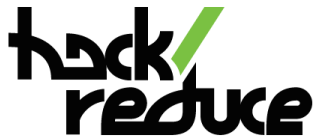Last Tuesday we heard from four panelists working in the insurance industry on how data science is transforming their businesses:
Marc Light (BitSight) - Director of Data Science
John Langton (Wolters Kluwer) - Director of Applied Data Science
Andrew Campbell (Sun Life Financial) - Director of Analytics and Insights
Satadru Sengupta (DataRobot) - GM and Data Scientist for Insurance
Moderated by Bobby Brennan who runs a data science consulting firm in Boston.
The panel began by discussing an exciting and important line of insurance that has recently emerged: cybersecurity insurance. Marc talked about how BitSight works with insurers to determine a company's risk of being breached; by creating automated tools for probing a company's defenses - without needing access to the company's internal resources - BitSight is able to accurately measure their level of security, allowing insurers to make informed decisions on whom they should underwrite and for how much. John also drew from his experience at VisiTrend and Carbon Black to discuss what he saw as unique challenges in measuring cybersecurity risk.
A common focus for each of the panelists is the way humans and machines can interact to create positive outcomes. Insurance decisions often carry large financial burdens and can have a huge impact on the livelihood of individuals and businesses, so it's crucial that the decision making process retains a human component. Andrew spoke about how his team enables human actuaries to make more informed decisions by drawing on machine-driven analysis. The panel seemed to be in agreement that together, humans and machines can drive better outcomes than either alone.
The panel concluded with a general discussion on the impact of data science in the insurance industry, both at the present moment and moving forward, and each of the panelists agreed that data science has been nothing short of transformative. Satadru pointed out that machine-driven statistical insights had ameliorated billions of dollars worth of insurance fraud committed every year, and expressed hope that we'd only just scratched the surface of what's possible. The consensus was that, while data science has had a massive impact on the insurance industry, the focus thus far has been on relatively simple methodologies and easily accessible data. Each of the panelists agreed that there are still vast improvements on the horizon, particularly as we uncover new data sources and learn to capture more signal from unstructured data.
Thank you to Marc, John, Andrew, Satadru and Bobby for an engrossing discussion and some fascinating insights on how data science is transforming insurance.
From left to right: Bobby Brennan, Marc Light, John Langton, Andrew Campbell, Satadru Sengupta


